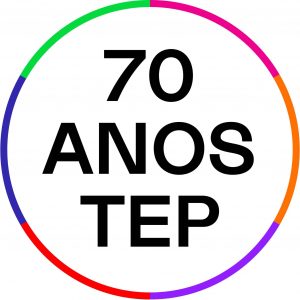On June 18, Teatro Experimental do Porto (TEP) celebrates its 70th anniversary by staging two shows inspired by the company’s archives, in which it highlights the role of women and gives voice to “micro-histories”.
The first, “Elas entrar e ficam!”, by Tânia Dinis, will be presented on Friday June 16 and Saturday June 17 at the Rivoli; the second, “Teoria das Três Idades”, directed by Sara Barros Leitão, will be presented on Sunday June 18 and Monday June 19 at the Mosteiro de São Bento da Vitória.
TEP is Portugal’s oldest theater company, having presented its first show in 1953, under the artistic direction of António Pedro, a precursor of modern theater in Portugal. In 2012, after two years as resident director, Gonçalo Amorim took over the artistic direction of the company. Amorim sees the founding association – the Círculo de Cultura Teatral – as the secret of TEP’s longevity.

In an interview with the Lusa agency, he revealed that the two shows organized to mark TEP’s anniversary – “Elas entrar e ficam!” and “Teoria das Três Idades” – were the result of an “activation of the archives”, which gave rise to two different readings.
Tânia Dinis’ point of view, explains TEP’s artistic director, “is that women have become part of the archive”, through their photos, texts, or even the covers devoted to censorship, which often results from associations with “female sexuality”.

“Elas entrar e ficam!” takes as its starting point the photographic archives of the company’s rehearsals and performances and, as its name suggests, places women as protagonists, bringing them onto the stage through “life-size” photos, with which Tânia Dinis interacts, in a journey that will trace a timeline, enabling us to discover how many female characters are to be found in the texts represented, “throughout 70 years”.
“A Teoria das Três Idades”, by Sara Barros Leitão, is a repositioning of a show that TEP created for its 65th anniversary, Gonçalo Amorim explained to Lusa, and recovers the “dead archives” and “micro-histories” that revolve around the company’s existence.
Unlike Tânia Dinis, Sara Barros Leitão found archives “in boxes and stirred up” – the result of an attempt to save the archives from water penetrating the place where they were stored – and became interested in so-called “dead archives”, such as “letters from the mother asking if there are acting classes for her son, or charts recording everything that happened on the day of the show, like charts where it was April 25 or [the first] May 1”.

The “Theory of Three Ages” represents the different layers of the TEP archives – the visible and the backstage – where the “micro-histories of the people who have taken an interest in the company’s theater and the people who have gravitated around it also construct the history of a country”, he described.
Pointing out that this year’s program is about TEP’s 70th anniversary, Gonçalo Amorim reveals that he is also building, with a Chilean company, a show about the 50th anniversary of April 25th, which will be celebrated in 2024, and about the 50th anniversary of the Chilean coup d’état, which imposed General Pinochet’s military dictatorship in the country on September 11, 1973.
The play, which he directed, will be performed for the first time in September in Chile and in March in Porto.
This year, in conjunction with the City Museum, TEP is also reviving, in December at the Tríplex, the exhibition “70 Years TEP – Living Archives”, which it promoted at the Theatre Museum, in Lisbon, now in a more complete version, in a journey through its heritage, through the history of Portugal’s professional theater company.

“We will also be publishing a book with the ‘Youth Trilogy’ – a set of three shows we produced between 2017 and 2019”, Gonçalo Amorim advanced, referring to his own creations “O grande tratado de encenação”, “A tecedeira que lia Zola” and “Maioria absoluta”, which tackled the Portuguese past through the perception and revolutionary utopias of the generations of the 1950s, 1970s and 1990s, respectively.
Artistic residencies, added TEP’s artistic director, will also continue.
Over these 70 years, some of the most charismatic figures in Portuguese culture have passed through the TEP, and the works of leading national and foreign authors have been represented there.
Today, with a new home at the CACE Cultural do Porto – the former EDP power station in Campanhã – TEP, as Gonçalo Amorim makes no secret of the fact, dreams of one day having its own stage on which to present its shows, as was the case at the Teatro António Pedro and the Sala Estúdio, which burned down in the 1990s.
“There’s always the ambition that the country’s oldest company should have its own theater,” he said, adding that ACACÉ could offer this possibility.
Celebrating 70 years of existence, the TEP, according to Gonçalo Amorim, “is in a phase that needs consolidation and continuity”, to which the four-year support of the General Direction of the Arts contributes, enabling it to look forward to the years to come and to continue the work of opening up its heritage to civil society and its headquarters to the artistic community.
Gonçalo Amorim also stresses the importance of the collaboration and support of the Porto and Matosinhos chambers, “privileged locations” for the premiere of TEP shows, which does not have its own stage.

